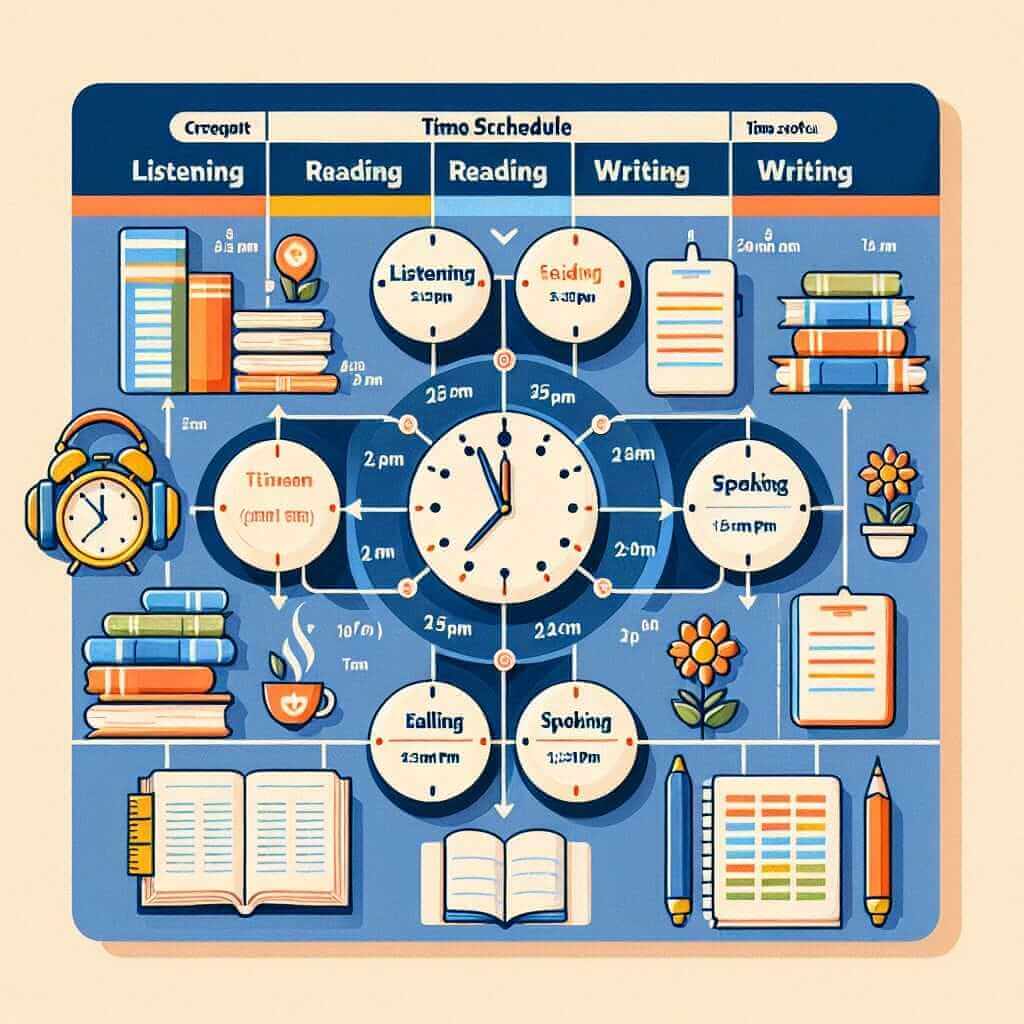As an IELTS instructor with over 20 years of experience, I’ve witnessed firsthand the struggles students face when preparing for this exam. Many fall into the trap of endless practice tests without a focused strategy, leading to frustration and limited progress. So, what can you do to improve your learning efficiency for IELTS? The key lies in understanding that efficient learning goes beyond simply the number of hours you put in; it’s about maximizing the impact of every minute you spend studying. Let’s explore some proven strategies to streamline your IELTS preparation.
Understanding Your Learning Style and Needs
Identifying Your Strengths and Weaknesses
The first step towards efficient learning is self-awareness. Take a diagnostic IELTS test to understand your current proficiency level. This helps pinpoint your strengths and weaknesses across all four sections: Listening, Reading, Writing, and Speaking. Once you have a clear picture, you can allocate your time and effort more effectively.
Tailoring Your Study Plan
No two learners are the same. Some thrive in group settings, while others prefer solitary study. Some learn best through visual aids, while others favor audio materials. Experiment with different learning methods and resources to discover what resonates best with you.
Maximizing Your Study Time for IELTS
Setting Realistic Goals and Deadlines
Avoid setting unrealistic expectations or overwhelming yourself with an overly ambitious study plan. Break down your IELTS preparation into smaller, manageable chunks. Focus on mastering one skill or concept at a time. For instance, dedicate a week to understanding different essay structures in Writing Task 2, followed by another week practicing those structures.
Creating a Consistent Study Schedule
Consistency is crucial for language acquisition. Dedicate specific time slots each day for IELTS practice, even if it’s just for 30 minutes. Treat it like an important appointment that you cannot reschedule.

Utilizing Effective Resources and Techniques
Don’t just passively read through IELTS books or websites. Engage actively with the material. Take notes, summarize key points, and test yourself regularly. Utilize a variety of resources like practice tests, sample answers, vocabulary builders, and online forums to keep your preparation dynamic and engaging.
Focusing on IELTS-Specific Strategies
Developing Active Listening Skills
In the IELTS Listening section, concentrate on understanding the overall meaning and key details. Practice note-taking techniques to quickly jot down important information while listening. Utilize authentic listening materials like podcasts, news broadcasts, and documentaries to familiarize yourself with different accents and speaking styles.
Improving Reading Comprehension and Speed
Skimming and scanning are essential skills for the IELTS Reading section. Practice these techniques to quickly identify the main ideas and specific information within passages. Enhance your vocabulary systematically by learning words in context and focusing on synonyms and paraphrasing.
Mastering Coherence and Cohesion in Writing
Pay close attention to the organization and flow of your writing. Use linking words and phrases effectively to connect your ideas smoothly. Practice writing different essay types, ensuring your responses are well-structured, coherent, and address all parts of the task.
Boosting Fluency and Pronunciation in Speaking
Record yourself speaking and analyze your performance for fluency, vocabulary, grammar, and pronunciation. Practice speaking about a wide range of topics to improve your confidence and ability to articulate your thoughts clearly and concisely. Remember, the IELTS Speaking test assesses your communicative ability, not just your grammatical accuracy.
Conclusion
Improving your learning efficiency for IELTS requires a strategic and personalized approach. By understanding your learning style, setting realistic goals, utilizing effective resources, and focusing on IELTS-specific strategies, you can optimize your preparation and maximize your chances of achieving your desired score. Remember, consistent effort and a focused approach are key to succeeding in this exam.